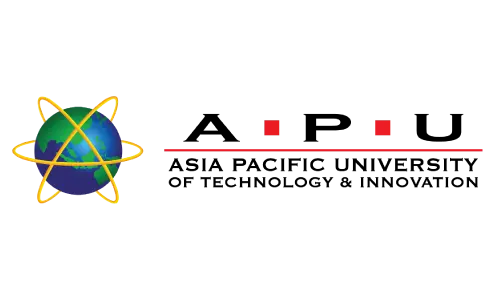
Bachelor of Science (Hons) in Computer Science with a specialism in Digital Forensics



| Yearly Tuition fees | |||
|---|---|---|---|
| Year | Fee | ||
| 1st Year | MYR 33,600 | ||
| 2nd Year | MYR 34,800 | ||
| 3rd Year | MYR 36,200 | ||
| Other Fees | |||
|---|---|---|---|
| Description | Fee | ||
| Library & Personal Bond Deposit (Refundable) | MYR 1,500 | ||
| University Administrative Fees | MYR 6,500 | ||
| Visa and Insurance | MYR 3,350 | ||
Embark on a transformative journey with APU University Malaysia Bachelor's (Hons)in Computer Science with a specialism in Digital Forensics program. Explore a myriad of invaluable insights and skills, detailed below:
In the first year, students will learn fundamental skills required by IT professionals. They will develop a basic understanding of programming, mathematical techniques, and algorithmic thinking. These skills serve as important prerequisites for their second and third-year studies. Additionally, students will gain knowledge in computer architecture, operating systems, networks, databases, security, and forensic technologies, which form the foundation of digital forensics investigation. Introduction to management will provide an understanding of personal and organizational development, along with independent learning and teamwork skills. By the end of this level, students will have a solid grasp of programming, mathematics, algorithmic thinking, computer systems, and the basics of digital forensics investigation.
Moving into the second year, students will acquire a broader range of skills in computer science. They will be involved in designing and implementing software, exploring innovative ways to utilize computers, and developing effective solutions to computing problems. This level covers theoretical and algorithmic foundations, as well as cutting-edge developments in various areas of computing. Successful professionals in computer science possess flexibility in performing a range of computing tasks and apply theories and practices across different domains. In the second year, core modules will enhance development skills and deepen understanding of platform technology. Specialized modules will allow students to delve further into advanced forensic methods, ethical hacking, and incident response. By the end of this level, students will have advanced skills in software development, platform technology, and specialized knowledge in digital forensics methods, ethical hacking, and incident response.
During the 16-week internship or industrial training, students will have the opportunity to apply their knowledge and skills in a real-world working environment. This practical experience will facilitate a smooth transition from the classroom to the professional world, allowing students to develop the necessary competencies and gain valuable industry insights.
In the third year, builds upon the foundation of previous studies and industrial experience. Students will further extend their familiarity with computer science and refine their personal and professional development. This level focuses on advanced programming techniques, algorithms, and the evaluation of applications at the forefront of current technology. Specialized modules enable students to expand their capabilities in digital forensics, incident response, and advanced cybersecurity, including topics such as penetration testing, mobile forensics, deep learning for intrusion detection, and legal and professional practice in the cyber world. The final year project will require students to investigate and develop a solution for a real-world problem, showcasing their ability to combine technical knowledge, critical thinking, and analytical skills. This project will result in the creation of a personal achievement portfolio. By the end of this level, students will have advanced expertise in programming, algorithms, evaluation of cutting-edge applications, and specialized knowledge in digital forensics and cybersecurity.
Students who joined Bachelor (Hons) in Computer Science with a specialism in Digital Forensics at APU University Malaysia will have the option to apply for the APU-DMU Dual Degree Scheme. Under this Scheme, students will be able to get 2 Degree Certificates & Transcripts upon graduation: 1 from Asia Pacific University (APU), Malaysia, and 1 from De Montfort University (DMU), UK. please note this is optional and costs GBP 375 Per year. For more information about this Scheme (Click here)
SPTM
• 2 Passes in STPM in Science stream with minimum Grade C (GPA 2.0) in Mathematics and one Science or ICT Subject.
For other qualifications and certificates (e.g., UEC, Foundation, STAM, etc..) please contact our educational consultants or submit your application for Admission assessment.
COMMON MODULES |
|
|
|
SPECIALISED MODULES |
|
|
|
COMMON MODULES |
|
|
|
SPECIALISED MODULES |
|
|
|
COMMON MODULES |
|
|
|
SPECIALISED MODULES |
|
|
|
The team typically replies in a few minutes.